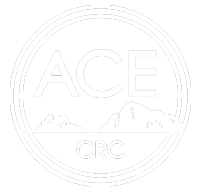Molecular Ecologist
Dr Laurence Clarke
Dr Laurence Clarke is a Molecular Ecologist with the ACE CRC and the Australian Antarctic Division Ecological Genetics group. He uses genetic approaches to study Southern Ocean and Antarctic ecosystems.
Laurence uses the power of high-throughput DNA sequencing to study systems that cannot be easily investigated using other approaches, including krill-associated bacteria, unicellular plankton, intracellular plankton parasites, and trophic interactions between fish and their prey. His work is providing insights into the importance of gelatinous prey in the diet of Southern Ocean fish, how the ecological drivers of plankton communities change with size from the nano- to the microplankton, and the prevalence of parasites in Southern Ocean ecosystems.
Laurence was awarded his PhD from the University of Wollongong in 2008. As ARC post-doctoral fellow at the Australian Centre for Ancient DNA (ACAD, University of Adelaide), Laurence led a group using environmental DNA (eDNA) approaches and high-throughput DNA sequencing to perform biodiversity surveys in aquatic and terrestrial ecosystems.
Laurence co-convened the first Hobart Molecular Ecology workshop in November 2017, and the first Microbiomes in Tasmania workshop in October 2018.
social & academic profiles
Clarke LJ, Bestley S, Bissett A, Deagle, BE (2018). A globally distributed Syndiniales parasite dominates the Southern Ocean micro-eukaryote community near the sea-ice edge. The ISME Journal. DOI: 10.1038/s41396-018-0306-7.
Robinson SA, King DH, Bramley-Alves J, Waterman MJ, Ashcroft MB, Wasley J, Turnbull JD, Miller RE, Ryan-Colton E, Benny T, Mullany K, Clarke LJ, Barry LA, Hua Q (2018). Rapid change in East Antarctic terrestrial vegetation in response to regional drying. Nature Climate Change, 8: 879–884.
Clarke LJ, Trebilco R, Walters A, Polanowski AM, Deagle BE (2018). DNA-based diet analysis of mesopelagic fish from the southern Kerguelen Axis. Deep Sea Research Part II: Topical Studies in Oceanography. DOI: 10.1016/j.dsr2.2018.09.001.
Deagle, BE, Thomas AC, McInnes JC, Clarke LJ, Vesterinen EJ, Clare EL, Kartzinel TR, Eveson JP (2018). Counting with DNA in metabarcoding studies: How should we convert sequence reads to dietary data? Molecular Ecology. DOI: 10.1111/mec.14734.
Deagle BE, Clarke LJ, Kitchener JA, Polanowski AM, Davidson AT (2018). Genetic monitoring of open ocean biodiversity: An evaluation of DNA metabarcoding for processing continuous plankton recorder samples. Molecular Ecology Resources, 18: 391-406.
Clarke LJ, Beard JM, Swadling KM, Deagle BE (2017). Effect of marker choice and thermal cycling protocol on zooplankton DNA metabarcoding studies. Ecology and Evolution, 7: 873-883.























